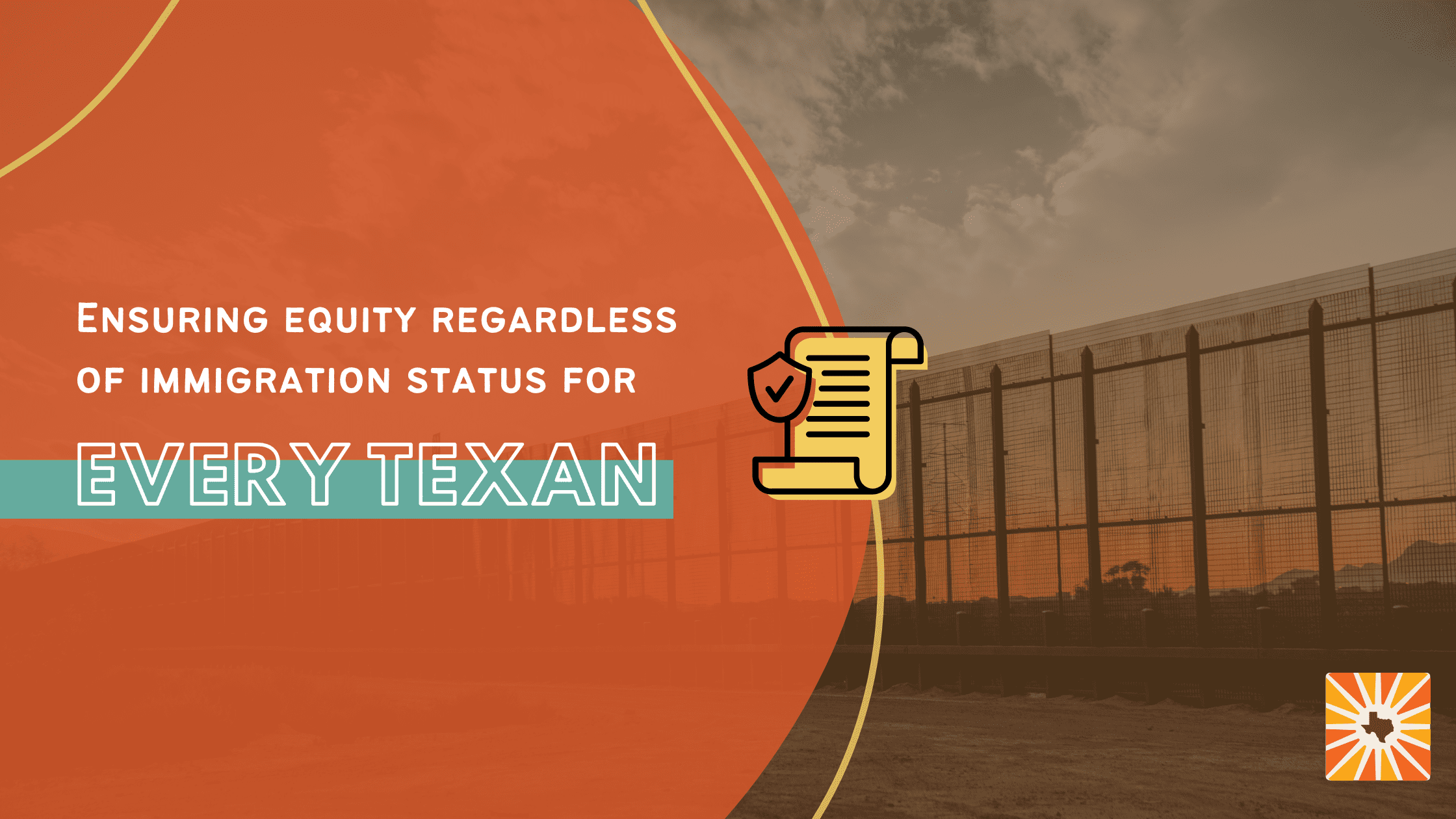Having been born and raised in El Paso, it’s clear to me that inclusion – regardless of race, income, or nationality – lives at the heart of our city’s culture. Following a tragic mass shooting in 2019 when a white supremacist murdered 23 people and injured another 24, the phrase “El Paso Strong” emerged as a demonstration of our community’s ability to unite against adversity. Now, our city is facing another challenge: deadly, anti-immigrant policy spearheaded by Greg Abbott and other extremist Republicans.
While El Paso’s local government, religious centers, and community groups are working diligently to implement a humanitarian process for migrants, extremists in our state’s government continue to impede that progress by perpetuating the false ‘invasion’ rhetoric seen in Operation Lone Star and bills like SB 4. As bad actors continue to implement harmful legislation across the state, it is more important now than ever to recognize the power that exists in community. “El Paso Strong” is not just a phrase; the community’s bond can act as a catalyst for change to bring about proactive policies in the state government.
A large part of what makes “El Paso Strong” is the city’s ability to accept people regardless of where they come from. Nearly 25% of El Paso residents were born in a different country. Countless residents have banded together to feed, clothe, and shelter migrants who are crossing through the southern border. The organizers spearheading these efforts are not asking for harsher policies or to further militarize the border. On the contrary, these advocates want state investments in education, infrastructure, and housing.
Ivonne Diaz, the Regional Program Coordinator for the nonprofit Texas Rising, has spent the last few years volunteering to help process asylum seekers in El Paso. She has also made numerous trips to Austin to testify that instead of investing in health care, a new electric grid, or better pay for teachers, state legislators “focus on things that don’t advance our community, like spending money on barbed wire and law enforcement and more prisons.” Unfortunately, it’s fallen on deaf ears, as Texas is now spending more than $5.5 billion this biennium on failed border security measures.
Instead of implementing a proactive agenda, extremist Texas Republicans have opted to score cheap political points at the expense of migrant families and border residents including an attempt to run the Annunciation House that provides basic housing to migrants out of business. This political game has a significant, tangible cost to Texas families. Over the last decade, state spending on border militarization has reached $6 billion. Meanwhile, state spending on education has remained roughly stagnant over the same period of time.
It’s not just that these extremist policies fail to benefit border communities, they actively hurt them.
“Legislation like SB 4 is the definition of counterproductive policy,” said advocate Manuel Guzman, who was raised in both El Paso and neighboring Ciudad Juárez. “Those who are most impacted by these bad bills aren’t asking for them in the first place. People who live on the border don’t want to live in a place that is over-militarized and overpoliced. They want access to health care and funding for quality education, and they want migrants to be treated with dignity and respect. Texas has failed to provide any of these things.”
Extremist legislation, like those proposed, serves to propagate an out-of-touch agenda that wrongfully villainizes migrants while ignoring the critical issues border communities are actually facing. For instance, even though a quarter of nonelderly Texas border residents are uninsured, the Texas government fails to expand Medicaid, which would pay for itself. Every dollar spent on deterrence policies without evidence of effectiveness is a dollar lost on education, health care, and other underfunded public services.
Though the state government is failing to adequately address the needs of migrants at the border, people can still take action. Diaz notes that El Paso’s residents hold extreme power in the effort to ease conditions for asylum seekers and migrants: “It’s important [for people] to connect to organizations that are doing the work and to educate ourselves, not just believe what’s shown on TV.”
As migrants come to seek refuge in the United States, Texas should follow El Paso’s lead. The city continuously demonstrates that inclusion makes communities stronger. Instead of hampering El Paso’s progress with divisive, unhelpful legislation, Texas leadership must bolster funding for the humanitarian programs that the city’s community centers have implemented. Border residents know best and have made their position loud and clear: less barriers, more resources.
